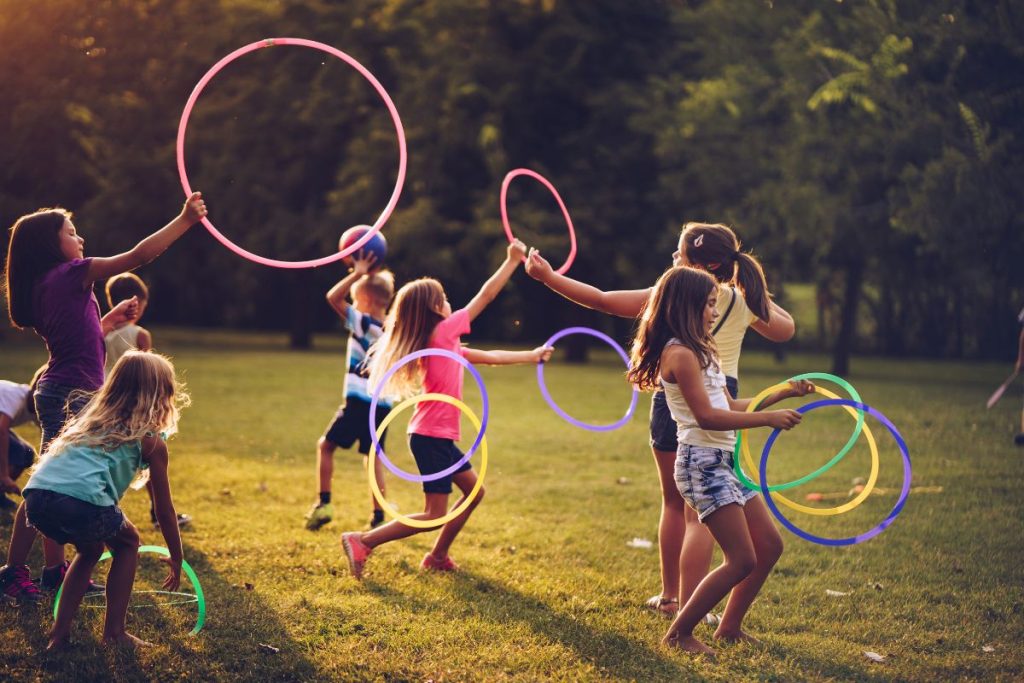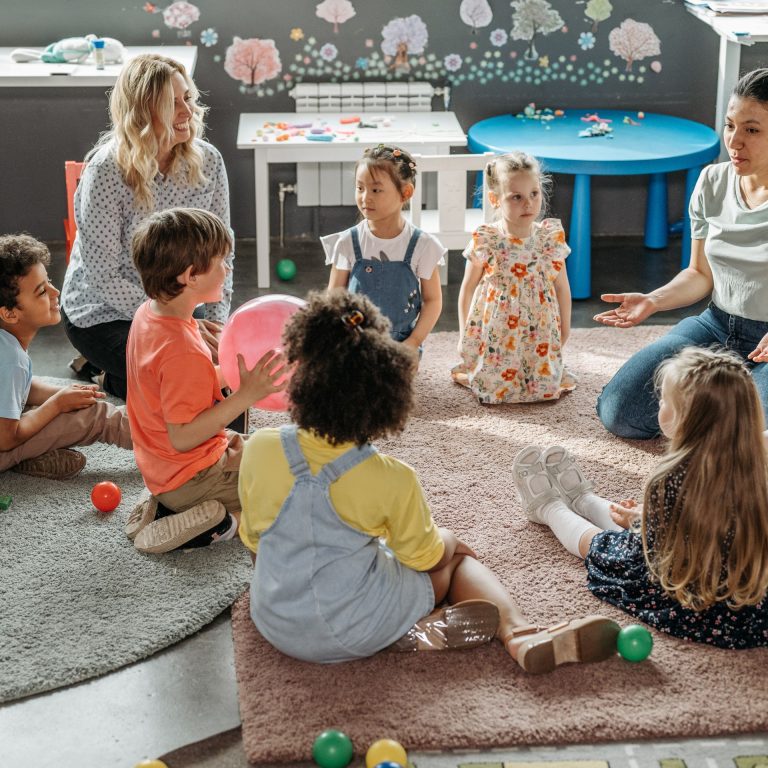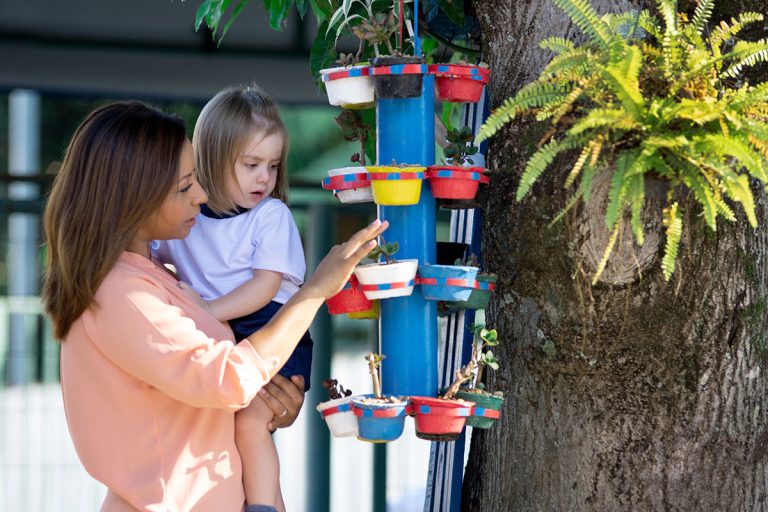In a world increasingly dominated by screens, have we forgotten the magic of outdoor play?
Who else remembers getting mud under your fingernails, playing knock-knock-ginger, getting constant grazes (awarded with your favourite cartoon character plaster) – just to name a few. Where have those times gone?
In this blog we’re highlighting some of the many reasons why outdoor play has a positive impact of early years development, and why you should bring a touch of that nostalgia into your setting’s routine.
The impact of outdoor play on children’s development
Firstly, Outdoor play has been proven to be beneficial to Children’s physical development, including gross motor skills such as running, jumping, climbing, balancing, throwing, and catching as well as aiding in developing fine motor skills such as digging in sand and picking up sticks. Outdoor environments offer more space and varied terrain than indoor settings for these activities.
Outdoor play also has various benefits to children’s health, for example increased physical activity helps in combatting childhood obesity, improved cardiovascular health, building stronger bones, and muscles. Sunlight exposure for Vitamin D synthesis. This form of play also provides a different type of sensory input which could include experiencing different textures, smells, sounds (wind, birds, rustling leaves), and sights (colours, open spaces).
It can also be positive to their cognitive development such as problem-solving. This can be done through navigating obstacles, building dens, and figuring out how to use natural materials. It can help their creativity and imagination too, unstructured play encourages children to invent games, roles, and scenarios. A stick can be a sword, a magic wand, or a fishing rod.
Various studies suggest spending time in nature can improve concentration, focus and attention (especially for children with early ADHD symptoms).
Lastly, outdoor play helps children’s social and emotional development through helping to build social skills, playing with others outdoors often requires negotiation, sharing, turn-taking, and cooperation, helping to build emotional regulation and giving them the freedom to express emotions (shout, run off steam), managing frustration, building resilience through safe risk-taking (e.g., climbing a tree and learning their limits).
Providing a safe and fun environment for outdoor play
While it is all fun and games, some parents/Early Years Practitioners may have some concerns around creating an environment for outdoor play that is both safe and fun.
- Safety: When it comes to little ones who have a complete lack of safety awareness, it is our job to keep them safe and teach them how to keep themselves safe. You can do this by supervised play (because we all know that children love to climb and jump off things!), teaching children about boundaries, and age-appropriate risks.
- Weather: “There’s no bad weather, only bad clothing!” There is a difference between risky play and dangerous play – Risky play involves allowing children to explore challenges and push their boundaries in a controlled and supported environment (e.g., supervised climbing on a low, stable log). Dangerous play involves unnecessary hazards or lack of supervision that could lead to serious harm.
WMC Training have been operating for 15 years, dealing with childcare professionals and nursery settings with a wealth of knowledge in the Early Years sector. We have compiled a list of practical tips we think are essential for keeping your outdoor time safe and fun.
- Making it a priority! We know life can get in the way, however scheduling outdoor regularly will help incorporating it into the children’s daily routine.
- Embrace the mess. Children love and thrive in mud, water, and sand, however, not as fun for us adults. Clothes and hands can always be washed, but their memories will last forever.
- Let them lead. It is important to encourage unstructured, children-initiated play. This is because it enhances healthy child development.
- Explore different environments such as parks, woods & gardens to provide a varied and enriched sensory experience.
- Join in on the outdoor fun! Children look up to us as role models, they learn and mimic everything we do, so it is important to have fun and show them how enjoyable the outdoors can be!
The message is clear: children thrive when given the freedom and opportunity to explore the natural world around them. Outdoor play is a dynamic classroom where vital life skills are forged through discovery, challenge, and imaginative engagement. As childcare professionals, educators, and parents, our role is to champion these experiences, creating safe, stimulating environments where children can lead, learn, and grow. Let’s make sure that sunshine, fresh air, and boundless natural wonder remain a cornerstone of every child’s Early Years journey.
WMC Training’s mission is to be the natural choice for staff training and development for the nursery sector based upon our reputation and continued striving towards high quality Apprenticeship and Adult education budget provision. We aim to engage and develop people from all walks of life, to inform their learning journey with passion and drive to help them succeed. We will work with local businesses to support needs for high quality staff learning and development and apprenticeship recruitment.
What are your favourite outdoor play memories or activities? Comment below!






